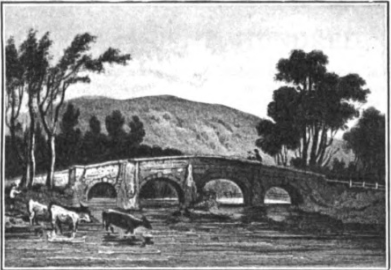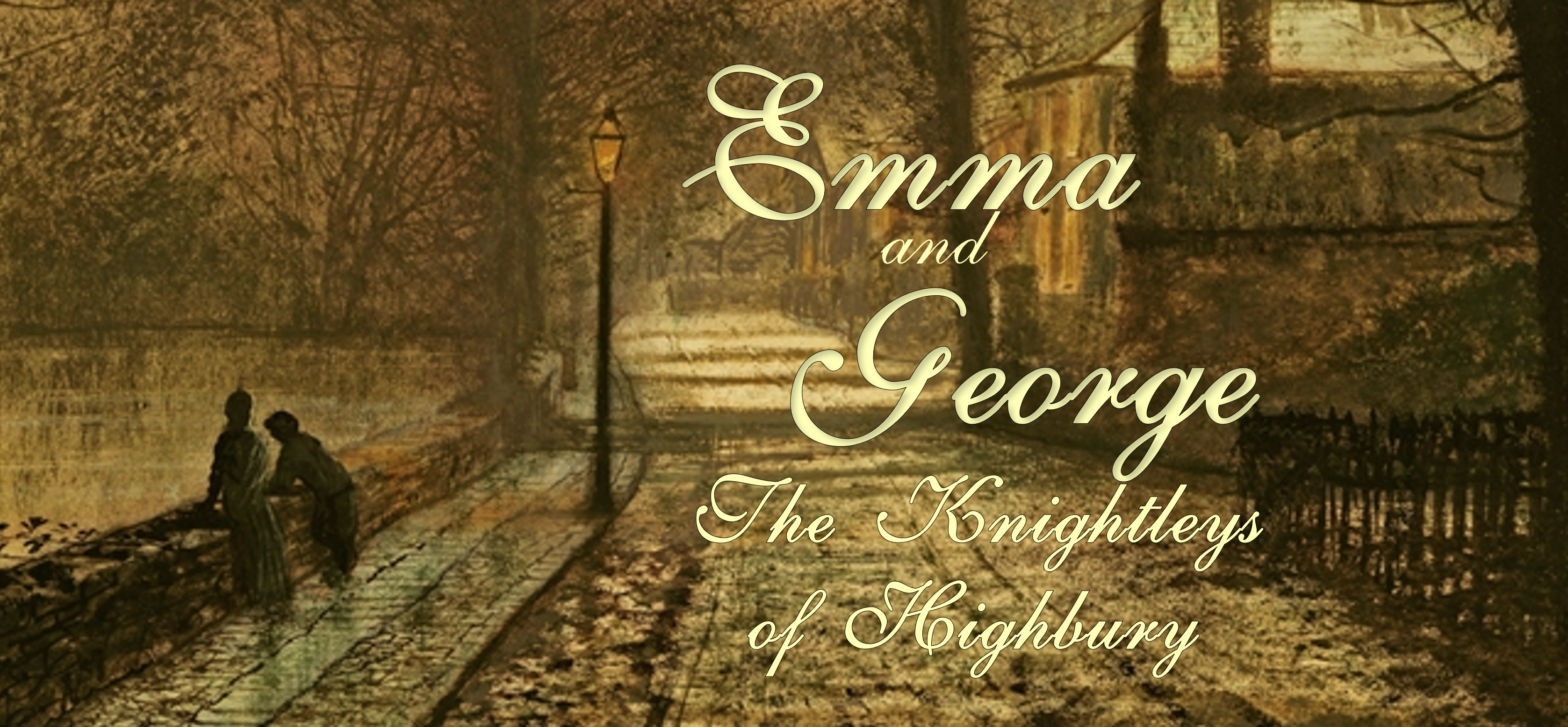
A novel by
Robert T. McMaster
Just returned from their honeymoon, Emma and George Knightley begin married life together in Highbury in Surrey, England, exuberant over the joyous turn of their lives and the lives of their friends, the Westons, the Churchills, the Martins. “May we all live happily ever after,” prays Emma. In Emma and George: The Knightleys of Highbury that prayer is put to the test. Can the “perfect happiness of the union” prevail? Can love survive and thrive amidst life’s harsh vicissitudes and the failings and deficiencies of the human spirit?
Among the many spinoffs, parodies, and adaptations of Jane Austen’s novels, Robert T. McMaster’s sequel to Emma stands apart. His portrayals of the familiar characters are remarkably faithful to the originals. Emma Knightley née Woodhouse—charming, witty, unfailingly affable, yet also strong-willed and much too sure of herself. Mr. Knightley, the Squire of Donwell Abbey—beneficent, egalitarian, sometimes even to a fault. Frank Churchill—handsome and genial on the outside, qualities that belie a dark, brooding interior, moral weakness, and a shocking tendency to dissemble, even with those dearest to him.
Lovers of Jane Austen will admire McMaster’s prose as it mirrors Austen both in language and in style. His descriptions of setting—lush Surrey landscapes, tidy villages, and stately homes—add richness and depth to his story, as do the details of politics, religion, even farming, in the Regency Era of early 19th century England.
To those unacquainted with Austen’s novels: Welcome to her world—but be forewarned! This story will beguile you, twist you about, amuse you one minute, appall you the next.
Where Jane Austen’s Emma leaves off, Emma and George: The Knightleys of Highbury, begins.
Box Hill, Surrey
FROM THE AUTHOR
A few words about Jane Austen's influence on his book,
Emma and George: The Knightleys of Highbury
Few authors have enjoyed the adulation and devotion of as many readers over more than two centuries as Jane Austen. Her six novels have proved to be among the most popular of her time and of ours, serving both as records of life and manners of a distant age and as models of character development and storytelling for future writers to emulate.
Of all Austen’s novels, Emma is one of the most beloved and enduring, capturing the hearts of millions of readers since its first publication in 1815. The book has inspired hundreds, perhaps thousands of spinoff novels, analyses, and scholarly works. It has also translated well to a new age, having been adapted for stage, film, and television more than any other of Miss Austen’s works. John Mullan, Professor of English at University College in London, has written that Emma “change[d] the shape of what is possible in fiction.” I think it is fair to say that the book continues to do so even today.
Ever since the day decades ago when I first read Emma and watched the newlywed Knightleys ride off into the sunset together, I have tried to imagine what might follow. What would their new lives be like back in Highbury? Would Mrs. Emma Knightley have learned from the errors of Miss Emma Woodhouse? Could she resist the urge to involve herself in the love lives of others? Would she continue to enjoy life as the mistress of Hartfield as well as the wife of the Squire of Donwell? In writing Emma and George: The Knightleys of Highbury, I finally had an opportunity to explore those questions and more.
Readers familiar with Emma will notice that I have taken a few liberties with the timeline at the end of that story. I have also added a few—very few—new characters. I have tried my best to be faithful to Miss Austen’s characters while allowing my imagination to carry them forward some four months beyond the day when Emma Woodhouse and George Knightley were wed, that day when “the wishes, the hopes, the confidence, the predictions of the small band of true friends who witnessed the ceremony, were fully answered in the perfect happiness of the union.”
I hope you will not be disappointed to learn that there are no zombies, no aliens, no warlocks or werewolves in Emma and George. Nevertheless, I give you fair warning, the Knightleys of Highbury and their friends—the Westons, the Martins, the Churchills, the Eltons, the Bateses, and the Knightleys of Brunswick Square—are in for a rough ride. But I promise Emma devotees that they will find most of their beloved characters have weathered those storms and are well situated by the final chapter as they ring in the New Year, 1815.
--- Bob McMaster
HOW TO GET
Emma and George:
The Knightleys of Highbury
We always urge our readers to support their local independent bookstore.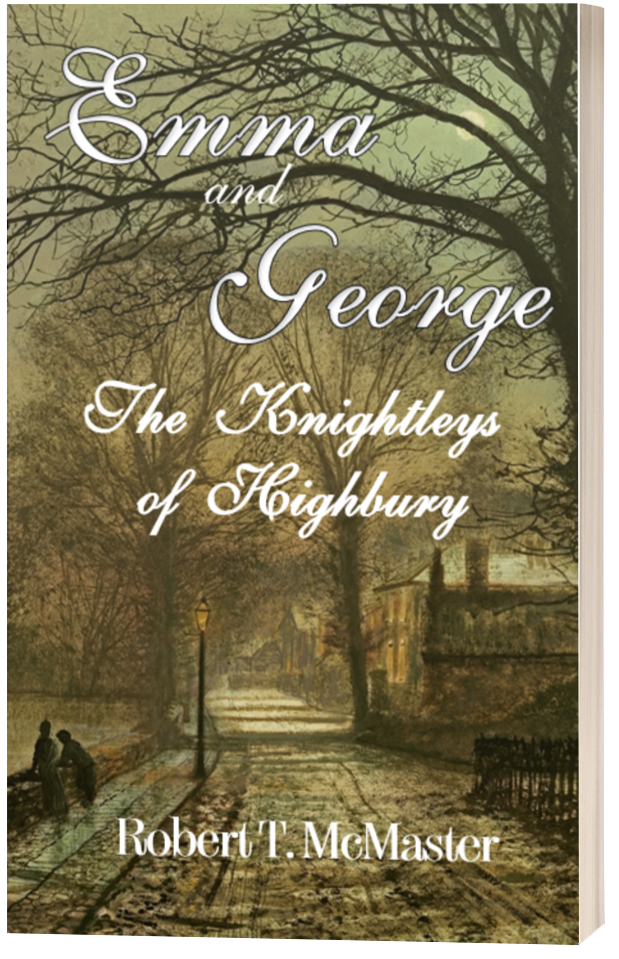
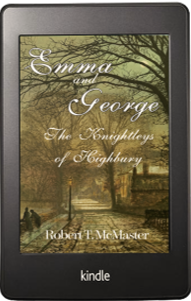
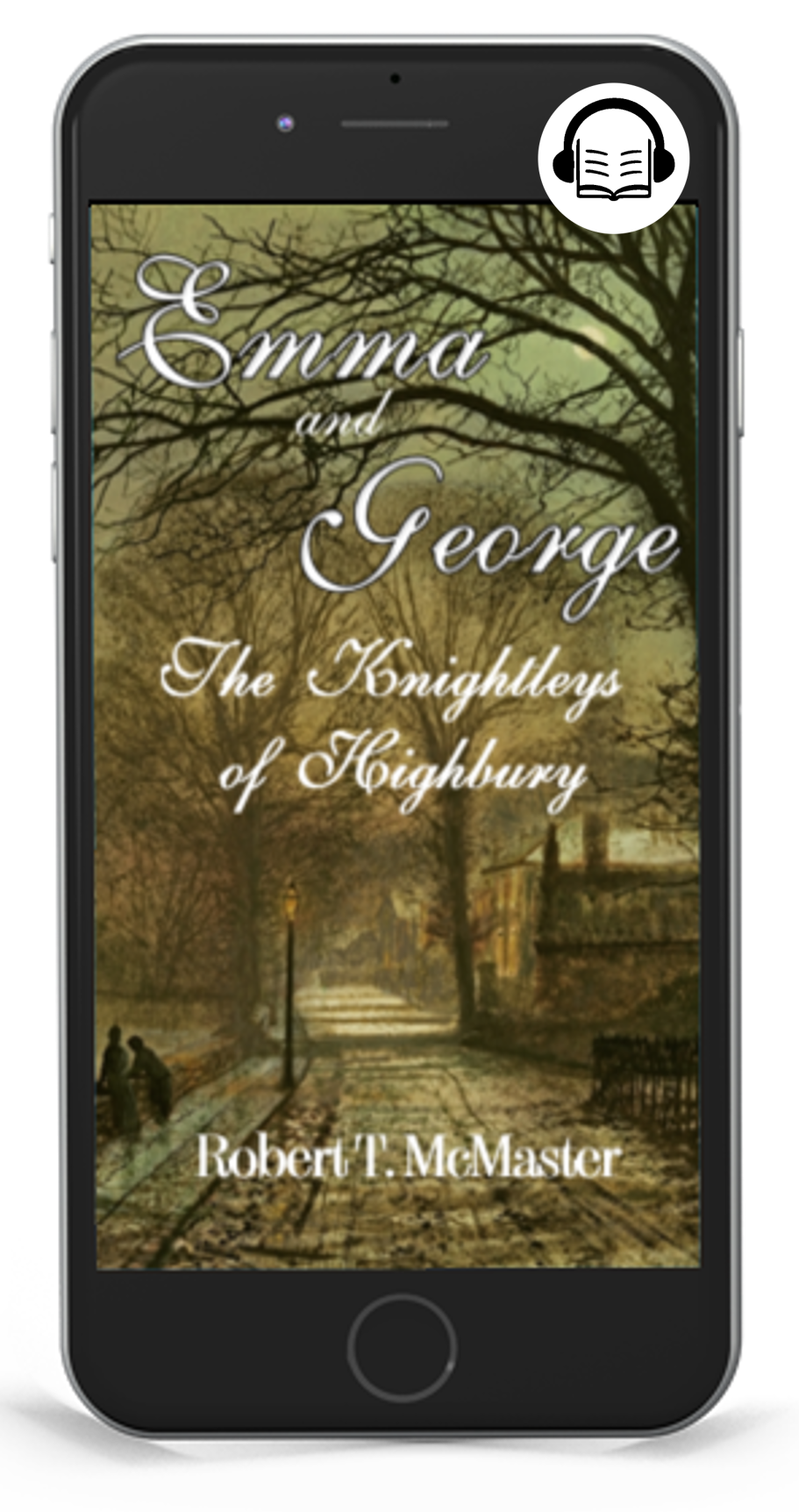
Print editions of Emma and George: The Knightleys of Highbury are available at
Amherst Books, Amherst, Mass.
Book Moon Books, Easthampton, Mass.
Booklovers' Gourmet, Webster, Mass.
Broadside Books, Northampton, Mass.
If you do not find Emma and George at your favorite bookshop, you may order it on line from Bookshop.org and your local independent bookshops can benefit.
We expect the eBook and audiobook to be available soon through local independent bookshops and Bookshop.org.
Print, eBook, and audiobook editions of Emma and George: The Knightleys of Highbury
are available from most major online book retailers including Amazon and Barnes and Noble (US) and Gardners and Blackwell's (UK and Ireland).
Special eBook giveaway
IN HONOUR OF JANE AUSTEN
1775 - 2025
December 16, 2025, marks the 250th anniversary of the birth of
Jane Austen. To honour her memory we are offering a free copy of the eBook Emma and George: The Knightleys of Highbury.
Click here to get your free eBook (ends 12/31).
FREE 40-PAGE SAMPLE
Emma and George: The Knightleys of Highbury
WORDS OF PRAISE FOR THE BOOKS
OF ROBERT T MCMASTER
Emma and George: The Knightleys of Highbury (2025): "McMaster’s love of history informed his writing process for “Emma and George,” which involved researching details about the Regency Era, including daily life, politics, farming and religion...his book is written in an Austenesque prose style."
- Carolyn Brown, Daily Hampshire Gazette (MA)
Trolley Days (2012): “It’s a joyful, engaging read from beginning to end...a masterful first novel. I hope it's not only not the last, but the beginning of a beautiful friendship with readers here, there, and everywhere."
- Mark Ashton, Southbridge (MA) Evening News
Fugitive from Injustice (2024): “…brilliantly written…chapters that flow with intrigue...I just couldn’t put it down.”
- Mary Crowley, The Munster Express, County Waterford, Ireland
All the Light Here Comes from Above: The Life and Legacy of Edward Hitchcock (2021):
"...a superb book that brings to light the person and his times."
- Stephen George, Professor Emeritus of Biology, Amherst College
“McMaster's biography brings Edward Hitchcock alive in all his facets...The book is eminently readable...I am confident in the scholarship of this work and recommend it to scholars as well as to anyone interested in history."
-Joanne Bourgeois, Professor Emerita of Earth and Space Sciences, University of Washington,
(Click here to read the complete review published in Earth Sciences History, 2022)
★★★★★
